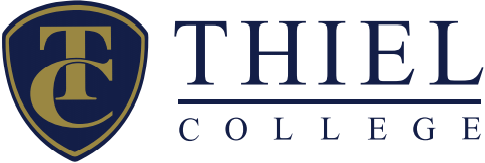

GREENVILLE, Pa.—Thiel College is enrolling the inaugural class of students for its new Clinical Mental Health Counseling master’s degree program in Fall 2022.
This program will prepare students to become professional counselors who provide ethically, culturally, and developmentally competent counseling services that are evidence-based and that enhance the wellness of individuals, groups, families, and the greater community. Graduates of this program will be prepared to become leaders and advocates who confront injustice and provide quality counseling services within diverse communities. The small student to faculty ratio of 11:1 at Thiel College helps to ensure that students are part of a supported, professional environment. The program intends to apply for national accreditation from the Council for the Accreditation of Counseling and Related Educational Programs soon after the first cohort graduates in 2025.
Licensed Professional Counselors are graduate-level-trained mental health providers dedicated to working with individuals, groups, and families in treating mental, behavioral, and emotional disorders and conditions. Counselors cultivate professional relationships with clients to help them develop strategies to overcome obstacles and personal challenges in order for them to foster their wellness and accomplish their education and career goals. There are more than 140,000 professional counselors licensed in all 50 states, the District of Columbia and Puerto Rico.
Counselor’s training in the provision of counseling and therapy includes the assessment and etiology of mental illness, substance abuse disorders, and the provision of evidence-based treatments such as cognitive-behavioral, interpersonal, and psychodynamic therapy. Licensed Professional Counselors are prepared to promote strengths-based, holistic, and wellness models to foster optimal human growth and development over the lifespan. They are employed in a variety of settings, including community mental health settings, private practice, college/university counseling centers, hospitals, addictions and substance abuse treatment facilities, and corrections and juvenile justice facilities. They must have a master’s or doctoral degree in counseling from a regionally accredited college or university that includes a practicum or internship in their curriculum as well as coursework in human behavior and development, effective counseling strategies, ethical practice, and other core knowledge areas. They must have completed a minimum of 3,000 hours of post-master’s degree supervised clinical experience within two years, have passed the National Counselor Exam or a similar state-recognized exam and adhere to a strict code of ethics and recognized standards of practice regulated by state licensure boards and the American Counseling Association.
According to the Substance Abuse and Mental Health Services Administration, the United States will have a shortage of mental health counselors by 2025. This trend has increased due to the COVID-19 pandemic. More than 40 percent of adults in the United States report symptoms of anxiety or depressive disorders, and there is a reported increase in mental health-related symptoms since the start of the pandemic among children and teens as well. Licensed professional counselors provide mental health and substance abuse services to millions of Americans.
At Thiel, the counselor training model emphasizes social justice and the multifaceted approach that it represents in which counselors strive to simultaneously promote human development and the common good through addressing challenges related to both individual and distributive justice. This approach includes empowerment of individuals and groups as well as active confrontation of injustice and inequality in society, both as they impact clientele and in their systemic contexts. In doing so, counselors direct attention to four critical principles that guide their work: equity, access, participation, and harmony.
There are several pathways for student admission into the Thiel College Clinical Mental Health Counseling graduate program. The Accelerated Bridge Program allows highly qualified high school seniors to pursue both their bachelor’s and master’s degrees at the College in five years. The second pathway is the Traditional Post-Bachelor’s Degree, which admits students for a master’s degree who have already earned a bachelor’s degree. The third pathway allows current Thiel undergraduate students to apply for early admission into the graduate program for counseling.
About Thiel College
Thiel College is an independent college founded in the Lutheran tradition. Located in Greenville, Pa., the College offers 60 majors and minors, 24 varsity sports, and an 11:1 student-faculty ratio. The College is also home to a new Master of Science in speech-language pathology and 2Master of Business Administration. Both master’s degree programs offer innovative and accelerated five-year paths which allow students to earn a bachelor’s and master’s degree in five years. The speech-language pathology program also has an accelerated 15-month graduate-level program. The M.B.A. program also has a 12-month post-graduate program.A dedicated faculty paired with dynamic research and internship opportunities produce numerous graduate school and job placements. Coeducational from its beginnings, the College remains committed to combining tradition with innovation as it celebrates 150 years.
